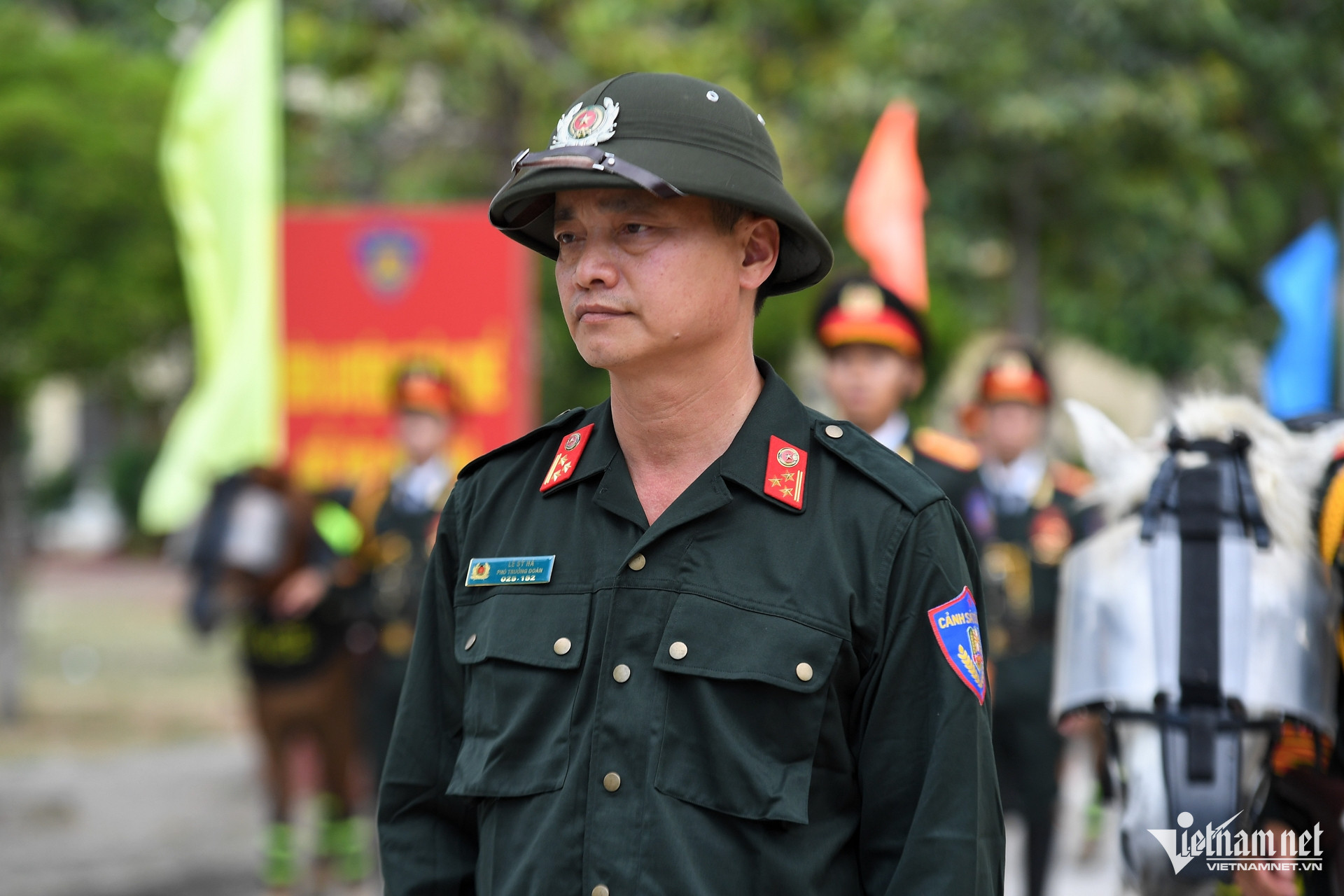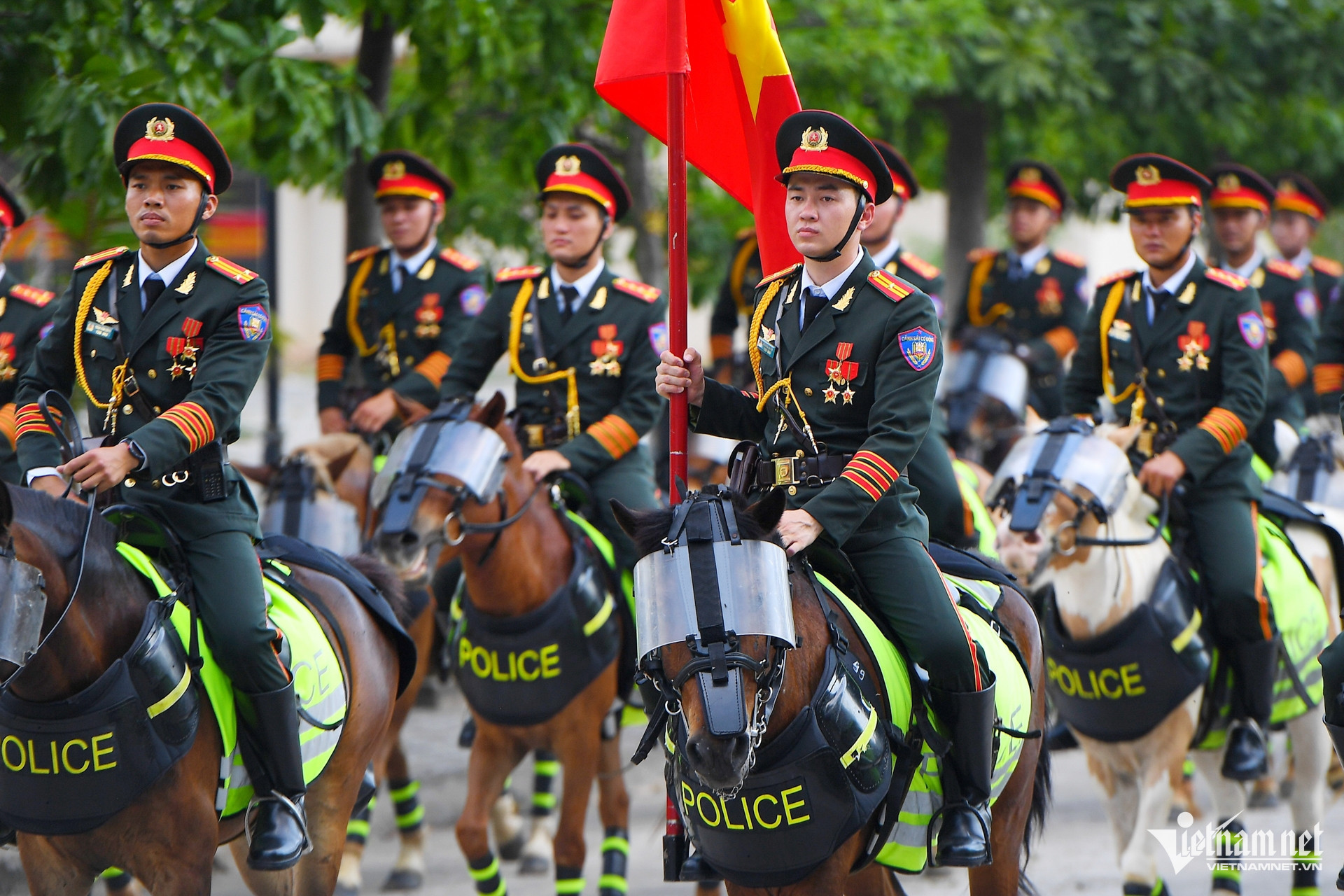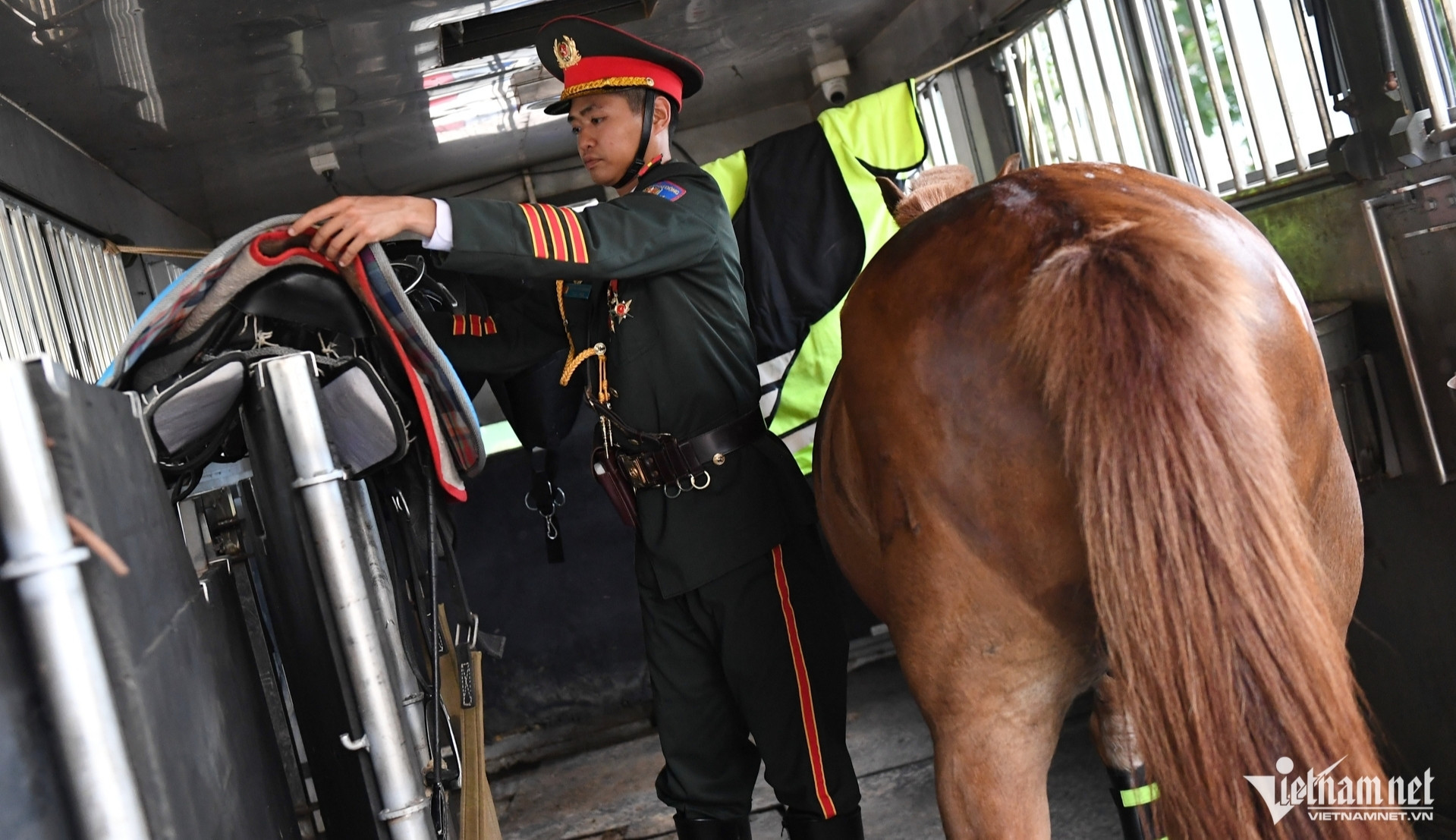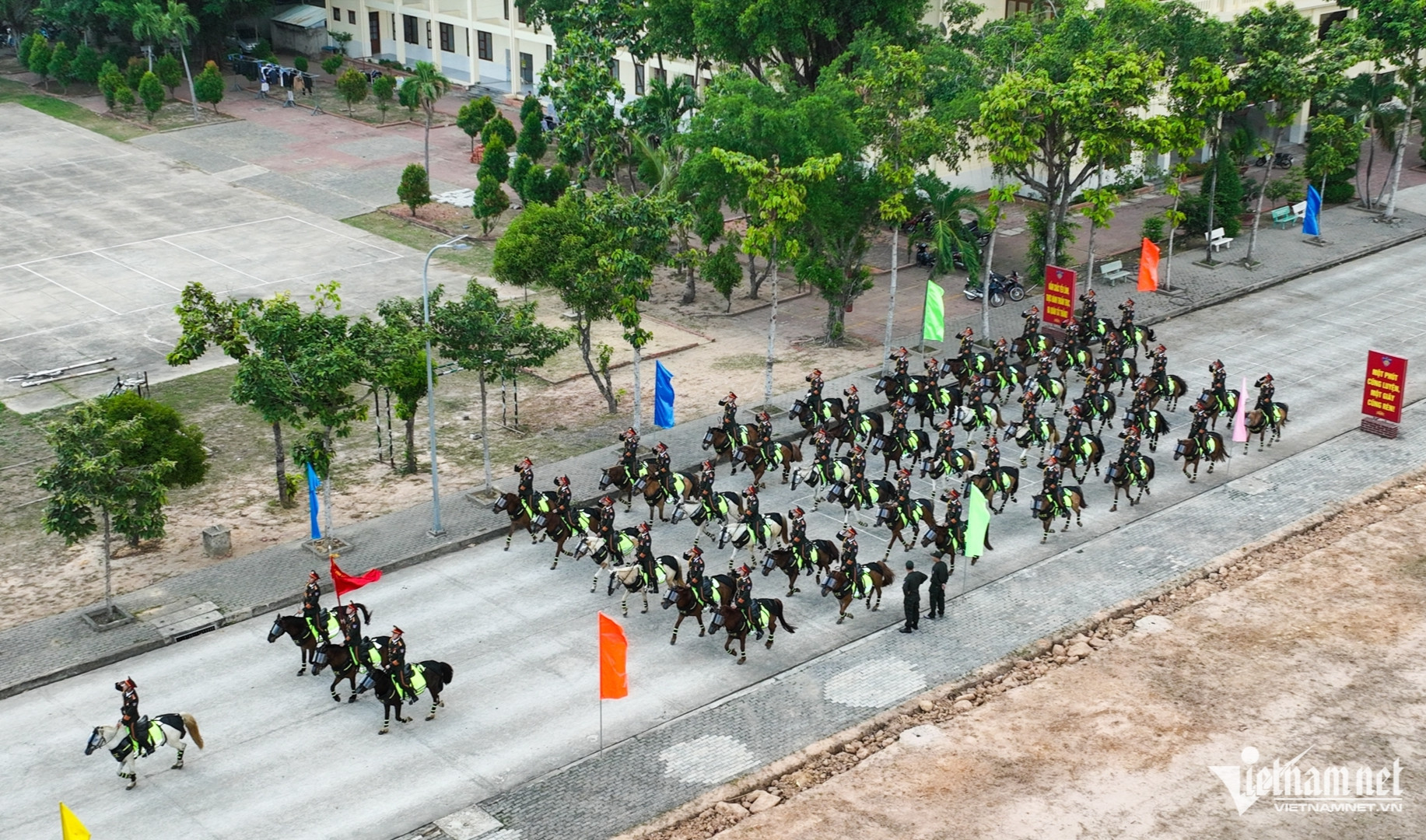Twenty-one vehicles were mobilized for the journey, including eight trucks carrying horses, one vehicle carrying forage, and another transporting veterinary equipment.
A nearly 2,000km journey completed in three days and two nights

At 5:00 AM on March 25, 127 officers, soldiers, and 62 service horses set out from Thai Nguyen to Ho Chi Minh City, covering nearly 2,000km in three days and two nights by road.
More than a month later, the cavalry unit of the Mobile Police Cavalry Regiment (under the Mobile Police Command - K02, Ministry of Public Security) has now settled into accommodation and training at the No. 2 Special Police Unit (Thu Duc City, Ho Chi Minh City) in preparation for the grand celebration marking the 50th anniversary of national reunification on April 30.
Lieutenant Colonel Le Sy Ha, deputy commander of the Mobile Police Cavalry Regiment, will lead the cavalry unit's parade at this year’s event.
Ha shared that although the regiment has traveled to many localities before, this journey was one of the most special and challenging.
Over the nearly 2,000km journey through different provinces with varying weather conditions, constant and meticulous care was essential to safeguard the horses' health, requiring close monitoring by breeding and veterinary officers.



After receiving the assignment to participate in the April 30 parade — a major national event — the Mobile Police Cavalry Regiment’s command board held multiple meetings to finalize detailed plans for transportation, horse care, and training over the following month in Ho Chi Minh City.
The transportation plan outlined every detail: individual assignments, forage preparation, rest stops, meal and rest durations, and horse health checks. "Everything was planned down to the centimeter," Lieutenant Colonel Ha emphasized.
During the journey, the regiment coordinated with local police and K02 units to arrange safe rest and feeding stops for both officers and horses.
Meticulous planning for the journey

In total, 21 vehicles were mobilized, including eight trucks for the horses, one for forage, and another for veterinary supplies.
Each day, at lunch breaks, the horses remained in their trucks, which were parked in shaded areas with all doors open to ensure ventilation. Breeding officers fed the horses while veterinary staff checked each animal's health, immediately addressing any signs of fatigue, motion sickness, or appetite loss.
Each evening, the regiment stopped at a Mobile Police unit with adequate space for the horses to rest and move freely, relieving the stress of long hours confined in trucks. Horses were provided with a full meal including hay, bran, and mineral salt licks to supplement their nutrition.
All forage was transported by the regiment. Upon arrival in Ho Chi Minh City, fresh forage was delivered daily by a local supplier to maintain the horses’ diet.
At overnight stops, officers carefully bathed, groomed, and tended to the horses, ensuring they felt as comfortable as if they were "at home."
Safe arrival and acclimatization

All 62 service horses safely arrived at the No. 2 Special Police Unit in Long Thanh My Ward (Thu Duc City) on March 27. This facility offers sufficient housing for 127 officers and soldiers, as well as ample stabling space for the horses.
"When the journey began, the North was still experiencing the tail end of its cold season, while the South was entering its hot, dry period. This weather change posed the greatest health risk to the horses," Lieutenant Colonel Ha explained.
Based on initial surveys, stabling facilities were arranged to create a "microclimate" to help horses gradually adapt to the warmer southern conditions.
Following the move, a few horses initially showed signs of fatigue or minor illness. However, thanks to close monitoring and timely veterinary care, all horses have since fully adapted and remain healthy, ready for the grand parade.
The bond between soldiers and their horses

Before a national event so eagerly anticipated by citizens, the young officers feel both pride and a touch of anxiety — not just for their own health, but for the well-being of their entrusted horses.
Monitoring the horses' health is not solely the veterinarians' duty; the officers themselves, who spend the most time with the animals and understand them best, play a vital role. They are the first to rejoice or worry over the conditions of their "battle companions."
"Our officers and soldiers are filled with determination and excitement, eagerly awaiting the grand day to report to the nation about our cavalry regiment’s hard work and dedication over the past months," Lieutenant Colonel Le Sy Ha shared.
Nguyen Thao, Thach Thao, Phuoc Sang